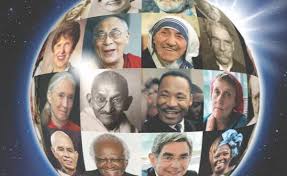
Taking Another Look
First, a disclosure: this blog – as many of my blogs – uses the experience of a Catholic to illustrate its purpose. I believe, however, that people of any faith, or no faith, can find the blog useful.
I recently came across an online article, by Daid Johnston, called “I Thought I Was Done with Catholicism. Then I Watched ‘Mrs. Davis.’”
“I was always the token religious kid in school growing up,” Johnston writes, “prone to being prudish and judgmental, and making a big deal about fasting for the triduum (that’s Holy Thursday, Good Friday, and Holy Saturday). But like the millions of people who are raised in the strict, repressive religion, once I entered the wider world, I realized that Catholicism didn’t serve me anymore.”
The author revealed that she intended to be a nun, but starting college, she “realized there’s more to me than my faith and my religion,” and like so many who believe their college days were an awakening to the “uselessness” or “evils” of religion, she abandoned her faith.
“Cafeteria Catholic”
She describes herself as “terrified” of becoming a “cafeteria Catholic,” a term used to describe a Catholic who chooses which of the church’s teachings and practices she accepts and which she doesn’t. So she determined that her only course was to “abandon faith entirely.”
“After that,” she writes, “I focused on discovering my identity outside of beliefs, trying to be a good person to those around me, not (according to) some strict instruction manual. I graduated, got a job … and didn’t think about religion much after that.”
But she writes that she had a “soft spot” for nun stories, having contemplated a religious vocation in the past. And that prompted her to watch “Mrs. Davis,” a show on the streaming network, Peacock. Wikipedia describes the show as “an American science fiction comedy dramaseries created by Tara Hernandez and Damon Lindelof. …The series stars Betty Gilpin as a nun using her faith to take on technology.”
Joyful, Intentional Community
Johnston writes that she was “shocked when, in just the first episode of Mrs. Davis, Sister Simone is shown as part of a joyful, intentional community of women who made jam, sang songs, and took care of horses.
They live in a tech-free bubble in a world overrun with technology and governed by the whims of an AI (Artificial Intelligence).”
One episode especially shocked her, writing that the “casual effortlessness … of a relationship with God could be as personal as a relationship with a friend or … spouse. She does what she thinks is right, not what fits the doctrine.”
The writer, seems to me, wasn’t paying attention during all those years of Catholic education. Or, I simply had an experience that was radically different from hers. Let me address some of the issues the writer brings up, because I think a lot of people share her views of religion.
I don’t consider Catholicism, which – except for periods of profound doubt, I’ve practiced my whole life – to be a “strict, repressive religion” and I don’t know what she’s referring to when she writes about “some strict instruction manual.” In my view, people who see my church that way need to take another look.
Not Equally Relevant
As for being a “cafeteria Catholic,” not all tenets of a faith are equally relevant or important to a believer. I don’t deny anything my church teaches because I don’t have enough data to do so, but not all of what the Church teaches is equally relevant to me.
“Doctrine,” in my view, is a compendium of what a religion teaches. In the case of Catholicism, and other Christian denominations, it’s a summary of what Jesus taught, and efforts, not always successful, to apply it to modern life.
Finally, I watched Mrs. Davis briefly, but I’m not a fan of whatever is “science fiction comedy drama.” But it’s not hard to find a “joyful intentional community” of women among nuns, and yes, they model “a casual effortlessness … of a relationship with God that is as personal as a relationship with a friend … or spouse.
That’s the whole point of religion, seems to me, and it’s not just for nuns.





